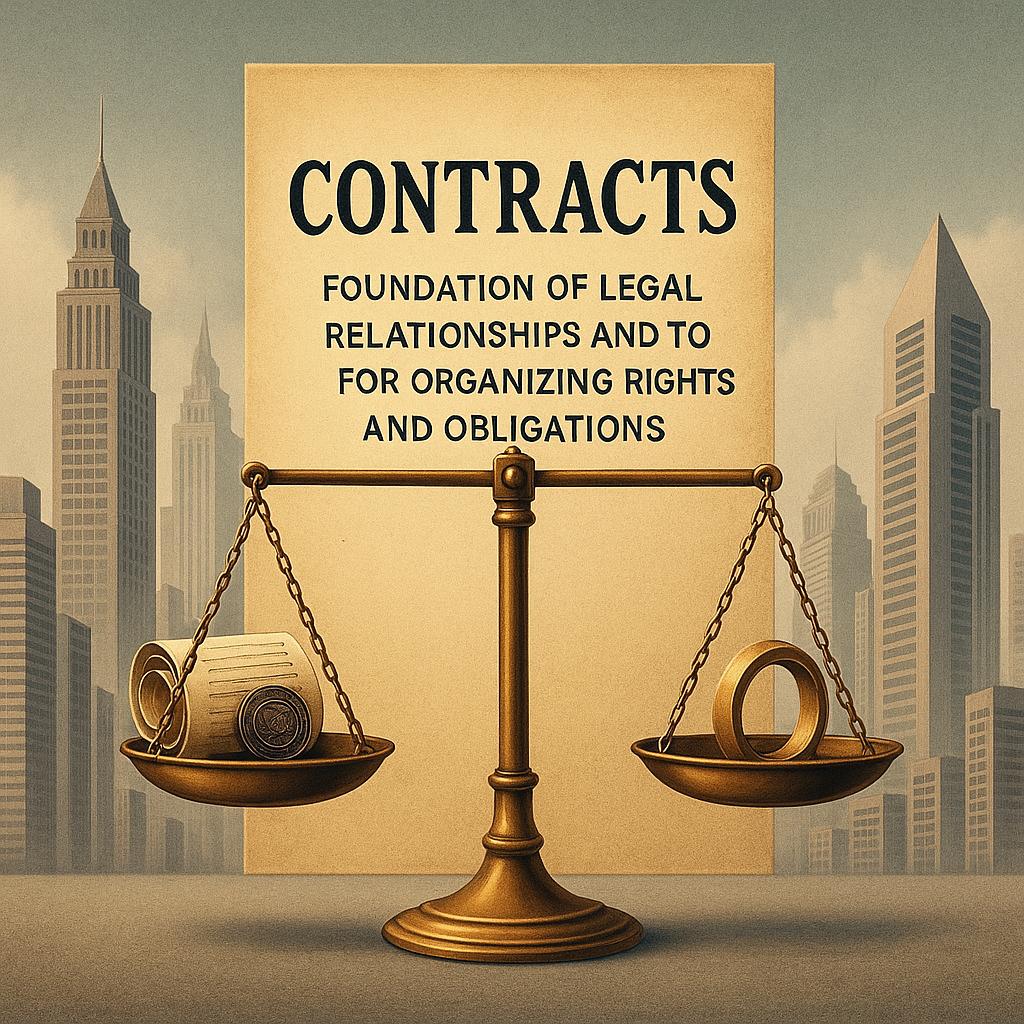



Since the dawn of civilization, contracts have been a fundamental tool that governs transactions between individuals and ensures rights and obligations in a clear legal framework. A contract is not merely an agreement between two parties—it is a cornerstone in building trust within society and organizing both economic and social relations. As societies have evolved, contracts have also developed to keep pace with life changes and have become one of the most vital tools in civil law today.
In the United Arab Emirates, the legislator has taken care to regulate contracts within an integrated legal framework that is rooted in Islamic Sharia on one hand and aligned with international legal standards on the other, achieving a balance between the freedom of will and the protection of public interest.
In ancient societies, contracts were often concluded orally, relying on witnesses or mutual trust. Over time, they evolved into written documents, especially in civilizations where trade and commerce flourished, such as Mesopotamia and ancient Rome.
With the development of law, contracts began to be drafted with precise legal language, including clauses, conditions, and penalties. They now play a central role in all aspects of life—whether in commercial relationships, employment, leasing, sales, or other areas.
The UAE Civil Law regulates contracts through Federal Law No. 5 of 1985 on Civil Transactions, which outlines the essential elements of contracts, their conditions, effects, and the provisions for their termination or invalidation. In addition, specialized laws regulate specific types of contracts, such as labor law, commercial law, and tenancy law.
1. Essential Elements of a Contract:
According to Article (129) of the Civil Transactions Law, a contract is not valid unless it includes the following elements:
• Mutual consent between the parties
• A lawful subject matter (object of the contract)
• A legitimate cause or purpose
2. Types of Contracts:
• Bilateral contracts (e.g., sale and lease)
• Unilateral contracts (e.g., gift without compensation)
• Determinate and aleatory contracts
• Instantaneous and time-based contracts
3. Electronic Contracts:
With the advancement of technology, the UAE has recognized electronic contracts under Federal Law No. 1 of 2006 on Electronic Transactions and Commerce, provided that they meet the same legal requirements and enable identity verification and electronic signatures.
In the past, contracts were often concluded simply and directly between individuals—either orally or with limited documentation. Today, they are more complex and specialized, often involving international parties and technological tools like digital signatures and AI-powered contract analysis.
New types of contracts have emerged, such as:
• Smart Contracts: Automatically executed via blockchain technology
• Multi-party and International Contracts: Subject to multiple legal jurisdictions
我们的文化培养并努力实现创新、创造力、法律专业知识,并以客户为中心。每天,我们都在增强我们的创业环境。